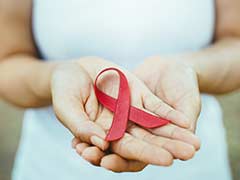World AIDS Day 2020: HIV contaminates and causes harm to vital cells and organs of the human immune system. The severity of HIV/AIDS varies from individual to individual depending on many factors like immunity.

World AIDS Day is observed on December 1
HIGHLIGHTS
- HIV can be transmitted by reuising contaminated syringes
- It can also be transmitted during pregnancy
- HIV is most infectious during the first few weeks of infection
World AIDS Day 2020: A syndrome caused by HIV (human immunodeficiency virus) is what we refer to as AIDS (acquired immunodeficiency syndrome). HIV-AIDS makes the human body defenceless against infections by compromising their immune system. If the condition progresses, people can get extremely susceptible to various infections.
World AIDS Day: What you need to know about transmission of HIV/AIDS
- Transmission through blood: reusing syringes contaminated with HIV infected samples is a very potent cause of transmission
- Sexual transmission: unprotected sexual activities with multiple people and exposure of a person to sexual fluids during physical intimacy
- Perinatal transmission: during pregnancy, childbirth and even breastfeeding, a mother can transmit the infection to her child

HIV can be transmitted by reusing contaminated syringes
Photo Credit: iStock
HIV contaminates and causes harm to vital cells and organs of the human immune system. The severity of HIV/AIDS varies from individual to individual depending on many factors like immune health that is the body's ability to defend against HIV, proper access to healthcare especially for people living with STD's and human body's resistance to other infections.
Also read: World AIDS Day 2020: The Evolution Of HIV Treatment, Explained By Expert
HIV/AIDS: Possible symptoms
Most people may experience no symptoms even after several months of being exposed to this infection. However people may experience flu like symptoms -6 weeks after catching the virus. Some early symptoms may include fever, chills, joint pain, muscle ach, sweats (particularly at night), enlarged glands, red rash, fatigue, progressive weight loss and the likes.
Tips for prevention
- Contact with body fluids: by reducing the risk of exposure to contaminated blood, HIV can be prevented. It is as easy as washing that part of the skin thoroughly that u think might have come in contact with contaminated blood/ fluids.
- Do not share any intravenous drugs (through needles and syringes): Sharing needles exposed to HIV and other infections can not only cause HIV AIDS but also conditions like hepatitis C.
- Unprotected sex exposes a person to the risk of contracting STD's (sexually transmitted diseases)
Adherence: HIV treatment is effective if medication is taken as prescribed. Missing even a few doses may jeopardise the treatment. It is crucial to take medication correctly and take steps to avoid illness. People living with HIV should seek to improve their general health by regularly exercising, eating healthfully, and not smoking. HIV is a lasting condition, so it is important to be in regular contact with the healthcare team.
It is important to understand that HIV AIDs does not get transmitted through means of causal contact like hugging, shaking hands, using same washrooms/toiletries etc.
Also read: World AIDS 2020 Focuses On Resilience And Impact Of HIV/AIDS Epidemic
(Dr Suranjit Chatterjee, Senior Consultant, Internal Medicine, Indraprastha Apollo Hospitals, New Delhi)
Disclaimer: The opinions expressed within this article are the personal opinions of the author. NDTV is not responsible for the accuracy, completeness, suitability, or validity of any information on this article. All information is provided on an as-is basis. The information, facts or opinions appearing in the article do not reflect the views of NDTV and NDTV does not assume any responsibility or liability for the same.
DoctorNDTV is the one stop site for all your health needs providing the most credible health information, health news and tips with expert advice on healthy living, diet plans, informative videos etc. You can get the most relevant and accurate info you need about health problems like diabetes, cancer, pregnancy, HIV and AIDS, weight loss and many other lifestyle diseases. We have a panel of over 350 experts who help us develop content by giving their valuable inputs and bringing to us the latest in the world of healthcare.














